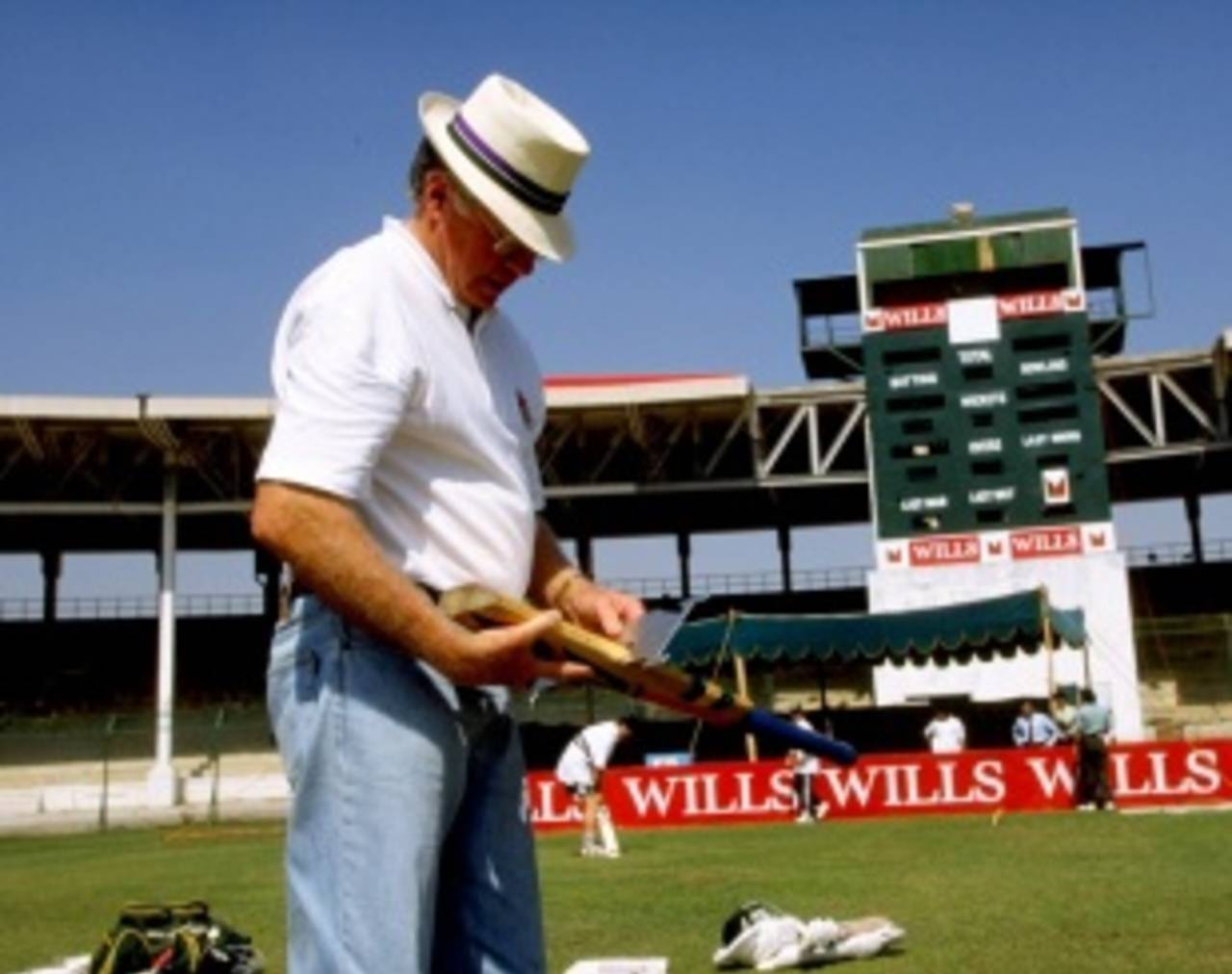CSA's tributes focus on post-unity players
South Africa's management has explained the players will wear black armbands in memory of people who were an important part of cricket in the country "especially post-unity"
Firdose Moonda
03-Feb-2013

Peter van der Merwe played for South Africa in the 1960s and was a match referee in the 1990s • Getty Images
South Africa's management has explained the players will wear black armbands in memory of people who were an important part of cricket in the country "especially post-unity", according to team manager Mohammed Moosajee.
The team did not wear black armbands for former players Neil Adcock and Peter van der Merwe, who died last month, and no on-field tribute was paid because of sensitivities surrounding South Africa's racially-divided past although there was a moments silence at CSA's AGM.*
"The player policy is that they will consider wearing black armbands if someone who is close to the
team and management from a family perspective, or someone who has been involved in CSA, especially post-unity, dies," Moosajee said. "If you open it up further than that, you've got to remember the sensitivities on both sides. With sensitivities on both sides, whom do you say yes to?"
Before South Africa's readmission in 1991, only white players represented the country because of the Apartheid policies in place. Adock played between 1953 and 1962, while van der Merwe's career was between 1963 and 1967. Players of colour formed their own board and held domestic matches but none were eligible for the national team.
As a result, Cricket South Africa has tried to restrict commemorations to those involved only after readmission. For that reason, the players' shirt numbers begin from 1991. The decision to not award Test numbers to players before unity and the absence of armbands has aggrieved some former players.
"It's time to forgive and forget," Barry Richards said. "We can't keep up this pretence that there was no cricket before 1992. I was three years old when the National Party came in to power in 1948, but I've paid the penalty. They keep talking about disadvantaged people - no-one's more disadvantaged than Graeme [Pollock] and I. We couldn't have Test cricket and we're not recognised now.
"It was a sad part of our history, but let's acknowledge that the guys who were good in that era were good, and when they die we respect them. It would be nice if the team did that. Neil Adcock in his prime would have got into a World XI and you have to acknowledge that. There is a certain respect that should be shown older guys. It just goes on and on and it's time to bury it all. It smacks of pettiness."
Graeme Pollock agreed. "The lack of black armbands for Adcock and van der Merwe is in line with the thinking that anything that happened pre-1992 doesn't get any credit or wasn't part of the system," Pollock said. "Everybody who has played for South Africa has made a contribution and those
two gentlemen certainly made a contribution."
Adcock took 104 wickets at an average of 21.10 in his 26 Tests while van der Merwe captained South Africa to their second Test series win in England, in 1965.
* 11.55GMT, February 4: This story was amended to add that a minutes silence was observed at the board's AGM.
Firdose Moonda is ESPNcricinfo's South Africa correspondent